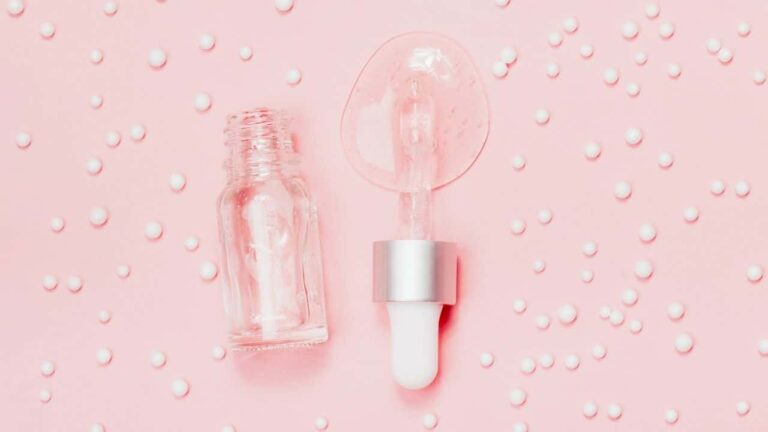8 BENEFITS OF HYALURONIC ACID SKINCARE

About 50% of the body’s total hyaluronic acid is found in the skin. Still, over time, this percentage naturally reduces, and other factors, including lifestyle changes and environmental factors, can also take a toll on skin health. The hydrating effects of hyaluronic acid can significantly lessen the depth of wrinkles, thereby increasing skin elasticity and firmness. It has been proven that hyaluronic acid boosts collagen production in the skin, which supports skin elasticity and keeps the skin taut and smooth.
Hyaluronic acid accelerates the tissue regeneration process involved in healing wounds and plays a crucial role in speeding up the wound healing process. It supports the scars to heal faster by balancing the inflammation levels and also signals the system to build more blood vessels so that the damaged area can be repaired. A study conducted in 2016 suggested that the topical application of hyaluronic acid to the affected area of skin can help regulate tissue repair and inflammation. Moreover, it has antibacterial properties. Hence, it minimizes the risk of bacterial infection when directly applied to open wounds or lesions.
As hyaluronic acid has wound healing properties, it can also benefit people with mouth ulcers and gum disease. A 2016 study proposed that topical application of hyaluronic acid could play a significant role in the post-op care of people going through dental treatments.
ABOUT THE AUTHOR
TATYANA DYACHENKO
Tatyana is a part-time sex, health and CBD blogger with a handful of magazines and blogs. Tatyana has been featured in magazines such as Cosmopolitan, Teen Vogue. Vice, Tatler, Vanity Fair and many others. Tatyana enjoys pursuing her flare for creativity through modelling, graffiti art, astronomy and technology. She also enjoy cycling across London on an iconic Boris bike that has come to define London. You are most likely to bump into Tanya in Brick Lane or Camden Town where she enjoys spending most of her time.




